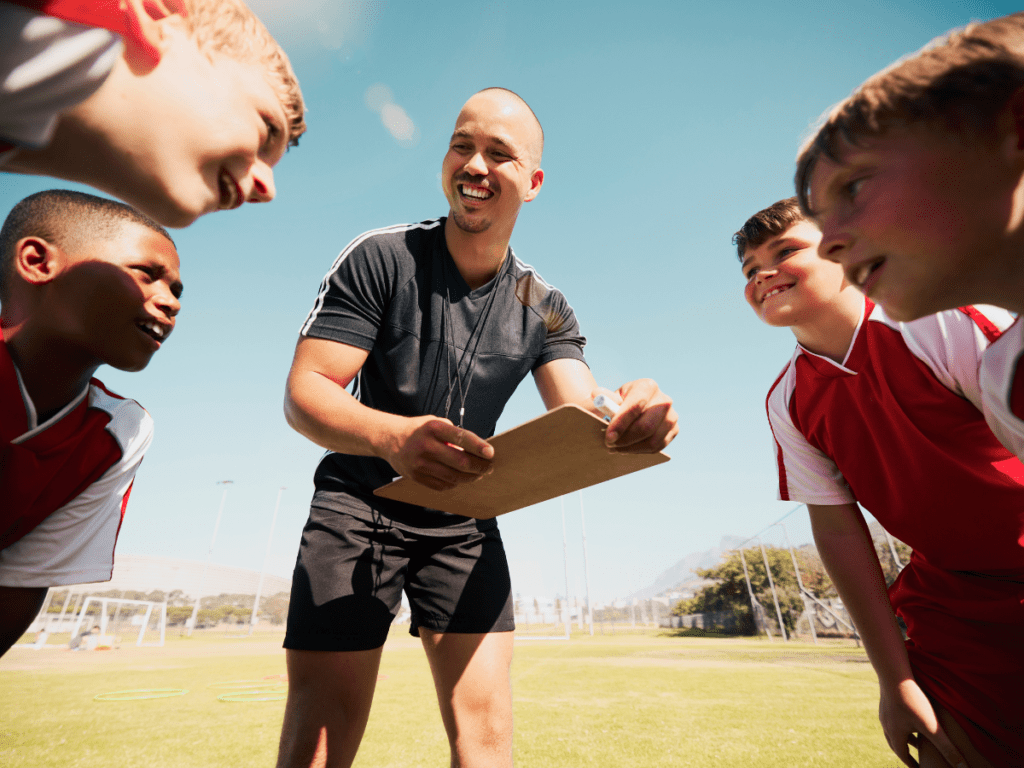
Community sport organizations (CSOs) are a central thread in the fabric of Canadian society, providing a meaningful place for people to play, compete, volunteer, coach, and interact with others who may share their interests and values. As a foundation of the sport development system, we look to them to provide high quality, fun, and safe experiences for their members. As such, CSOs have a unique platform of influence, engaging millions of children and adults across the country each year.
Recent evidence shows that CSOs are taking on a wider social role in their communities by engaging in socially responsible actions beyond their sport programs. Our research demonstrates how and why CSOs are expanding their scope to take on social action, and the impact of their efforts within the organization. This article summarizes our findings and provides practical tips for CSOs interested in incorporating socially responsible actions into their organizations.
Check out this short video for a summary of the research.
What is Social Responsibility?
Social responsibility refers to the different practices an organization demonstrates its concern for the community “above and beyond” the organization’s mandate and legal requirements (Carroll, 1999). While there has been a lot of attention paid to how corporate, for-profit organizations “give back” to society via corporate social responsibility, sport clubs are also broadening the scope of their efforts to address social problems and embracing their role in social development and the promotion of positive values (Canadian Heritage, 2012). These actions are considered discretionary in the sense that they are voluntary (i.e., not mandated by sport governing bodies), and are usually done in addition to their sport programs and used to address a social concern for their members, other partners, and/or their communities at large.
How are Sport Clubs Involved in Social Action?
Through focus groups with Boards of Directors from CSOs in Ontario, our research revealed that CSOs are concerned with and engaged in many different social issues (see the chart below). For example, some clubs were involved in environmental efforts such as park clean-ups, promoting carpooling at tournaments, and cleat/equipment swaps to keep older equipment from landfills. Other clubs extended their impact related to population health by raising awareness of heart disease through fundraising for the Heart and Stroke Foundation and hosting a heart health education event.
| Social Issue | Sample Initiatives |
| Environmental preservation/consciousness |
|
| Population health |
|
| Gender equity |
|
| Cultural integration into communities |
|
| Bullying & Mental health |
|
| Poverty reduction |
|
| Youth crime |
|
| Disability awareness |
|
What is the Rationale for Engaging in Social Action?
CSOs are engaging in socially responsible initiatives for a combination of altruistic and strategic reasons. Altruistic reasons include a desire to develop civic engagement among youth, to increase athletes’ awareness of social issues/justice, and to encourage reflection and involvement with groups of lower socio-economic status. Board members identified their own values and philosophy as primary drivers for taking on these programs above and beyond sport provision, citing that it was the “right thing to do”. Board members also spoke about the importance of acting as role models for members, as well as the broader sport community. Many board members felt that their CSO was well-positioned to provide important community leadership and model the possibilities of caring for others through sport.
“We have come to the realization that we should expect something of ourselves to give back to the community.” (CSO Board Member)
In contrast, other board members spoke about the strategic reasons behind their social initiatives and discussed how their unique programs could help differentiate their organization from others and attract potential members and volunteers.
“We are already relatively well-known in the community, but at the same time we want to increase our visual presence and want to be top of mind, and I think being involved in community and charitable initiatives is a big part of it.” (CSO Board Member)
What are the Benefits of Club-Based Social Action?

Many CSOs are run by volunteers and often have limited resources available for additional initiatives that do not directly serve their primary mandate – sport participation. It is therefore important to question whether additional activities are burdening an organization’s resources or whether the CSO can sustain social action and translate it into direct benefits. Our research found that CSOs who were engaged in socially responsible initiatives did not experience any burden to their human or financial resources. Instead, many cited “freedom” to engage as they were able without any pressure from stakeholders (e.g., members, parents, volunteers, governing bodies).
In addition, when we surveyed CSO members (735 members from across seven organizations), we found that socially responsible programs had a direct positive effect on member loyalty (desire to stay with the CSO as a member) and promotion of the organization to others through word of mouth. In other words, members who are aware of the good things their CSO does beyond their sport programs are more likely to speak positively about the organization to others and are more likely to stay involved in the future.
How Can My Club Build or Enhance Our Social Impact?
Below are a few tips for CSOs looking to effectively create or enhance their social impact agenda to benefit their communities and attain possible organizational benefits.
- Be intentional. Ensure that potential social impact initiatives are supported by members. Get involved with issues that members already care about.
- The board, staff, or other leaders may wish to speak to or survey members to align the CSO’s social impact agenda with member values and interests. By doing this, members are more likely to feel good about the efforts which may amplify their pro-membership behaviours such as talking to others about the organization.
- Social impact initiatives can be a leadership opportunity for members who are not otherwise actively engaged. Recruit interested members to manage the organization’s social impact platform.
- Be collaborative. CSOs may consider partnering with other organizations, such as non-profit organizations, charities, schools, municipalities, and corporations, in order to engage in socially responsible initiatives.
- Partnering with others will allow for combined expertise and access to facilities or other required resources.
- Setting up team-based initiatives within the CSO, or competitions between teams (e.g., for fundraising, toy drives, etc.) can be a fun way to take social action, partner with external organizations, and retain the collaborative nature of sport and building team cohesion.
- Be communicative. Leverage communication channels such as social media to raise awareness of the club’s socially responsible activities.
- Informing members and other stakeholders about the organization’s social impact initiatives not only promotes involvement and ensures that everyone who wants to can get involved, but also demonstrates a wider concern for the community that can be celebrated and highlighted in addition to sport-based achievements.
- CSOs can assign a skilled volunteer to communicate club actions through social media, such as Facebook, Twitter, and Instagram.
- E-newsletters are also a great way for CSOs to share information about their socially responsible efforts to current members, parents, and other stakeholders.
If your sport club is involved in social action and you are interested in being involved in further research, please email k.misener@uwaterloo.ca.
This research was supported by the Social Sciences and Humanities Research Council of Canada.